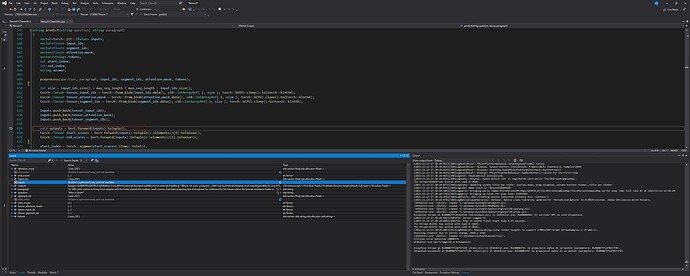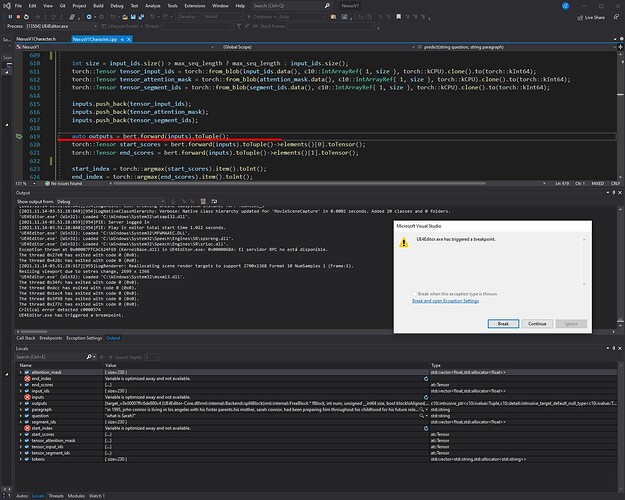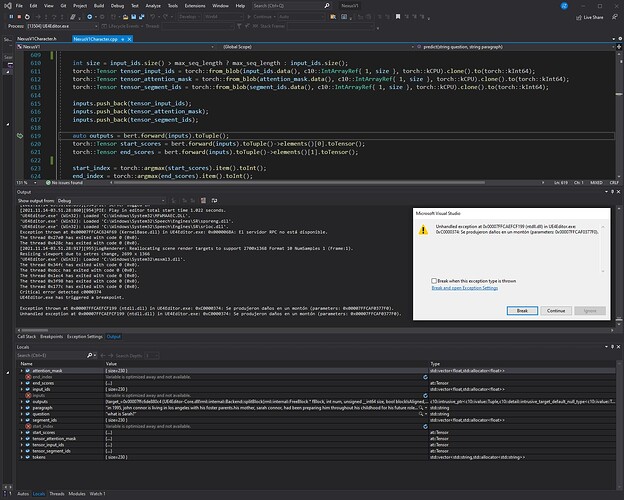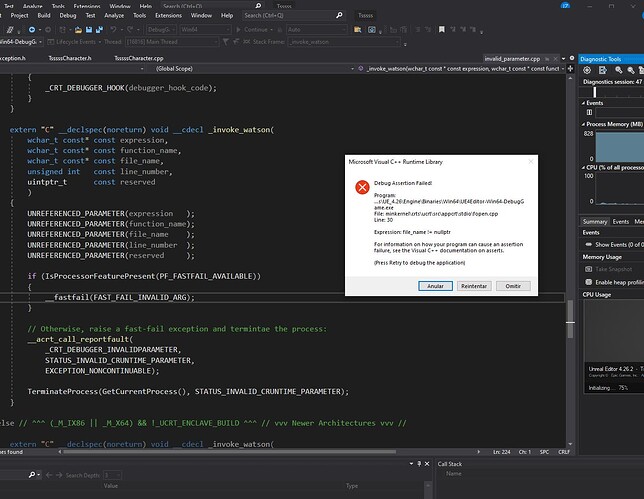I am trying to run my BERT model in Unreal engine with Libtorch. However, at runtime I get the following error when I run the forward function: Variable is optimized away and not avaible.
I use: LibTorch 1.10, Visual Studio C++ 2019 and Unreal Engine 4 version 4.26.2. Note: If I use only use LibTorch 1.10 and Visual Studio C ++ 2019 in release mode, my program run fine.
Please, could someone give me a suggestion on how to overcome this runtime error?
This is my function where ocurrs the error:
string predict(string question, string paragraph)
{
vectortorch::jit::IValue inputs;
vector input_ids;
vector segment_ids;
vector attention_mask;
vector tokens;
int start_index;
int end_index;
string answer;
preprocess(question, paragraph, input_ids, segment_ids, attention_mask, tokens);
int size = input_ids.size() > max_seq_length ? max_seq_length : input_ids.size();
torch::Tensor tensor_input_ids = torch::from_blob(input_ids.data(), c10::IntArrayRef{ 1, size }, torch::kCPU).clone().to(torch::kInt64);
torch::Tensor tensor_attention_mask = torch::from_blob(attention_mask.data(), c10::IntArrayRef{ 1, size }, torch::kCPU).clone().to(torch::kInt64);
torch::Tensor tensor_segment_ids = torch::from_blob(segment_ids.data(), c10::IntArrayRef{ 1, size }, torch::kCPU).clone().to(torch::kInt64);
inputs.push_back(tensor_input_ids);
inputs.push_back(tensor_attention_mask);
inputs.push_back(tensor_segment_ids);
auto outputs = bert.forward(inputs).toTuple();
torch::Tensor start_scores = bert.forward(inputs).toTuple()->elements()[0].toTensor();
torch::Tensor end_scores = bert.forward(inputs).toTuple()->elements()[1].toTensor();
start_index = torch::argmax(start_scores).item().toInt();
end_index = torch::argmax(end_scores).item().toInt();
for (int i = start_index; i < end_index + 1; i++) {
if (tokens[i].substr(0, 2) == "##") {
answer = answer + tokens[i].substr(2, tokens[i].length() - 2);
}
else
answer = answer + " " + tokens[i];
}
if (answer.empty() || answer.substr(1, 6) == "[CLS]") {
if LANGUAGE
answer = "Unable to find the answer to your question.";
#else
answer = “Lo siento, no puedo responder a tu pregunta.”;
#endif
}
return answer;
}



